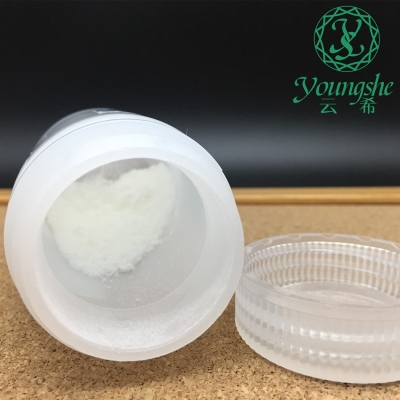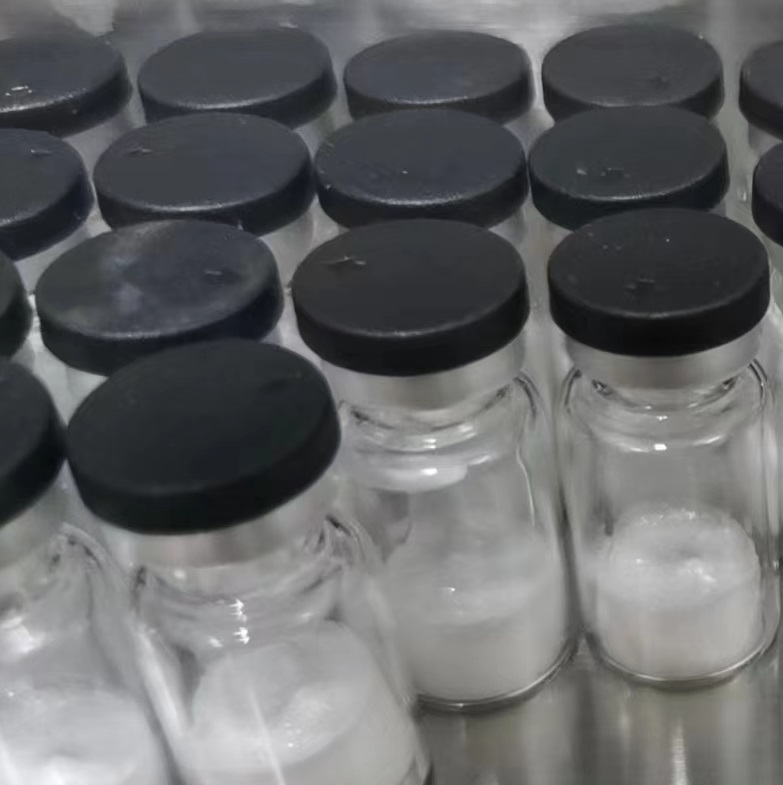-
Categories
-
Pharmaceutical Intermediates
-
Active Pharmaceutical Ingredients
-
Food Additives
- Industrial Coatings
- Agrochemicals
- Dyes and Pigments
- Surfactant
- Flavors and Fragrances
- Chemical Reagents
- Catalyst and Auxiliary
- Natural Products
- Inorganic Chemistry
-
Organic Chemistry
-
Biochemical Engineering
- Analytical Chemistry
- Cosmetic Ingredient
-
Pharmaceutical Intermediates
Promotion
ECHEMI Mall
Wholesale
Weekly Price
Exhibition
News
-
Trade Service
*Only for medical professionals to read and reference, you will not be confused after reading it! Many patients with thyroid disease only care about their thyroid function, but few patients care about their heart health
.
In fact, thyroid disease and heart disease are closely related
.
Studies have shown that when suffering from hyperthyroidism, the abnormal performance of the cardiovascular system can reach 85%! Therefore, in terms of the importance of protecting life, the prevention and treatment of cardiovascular and cerebrovascular complications such as coronary heart disease is more important than the simple treatment of thyroid disease
.
At present, the gold standard for diagnosing coronary heart disease is still coronary angiography, but iodine contrast agent (commonly known as "contrast agent") is needed during the operation, which seems to be not very friendly to patients with abnormal thyroid function, so patients with thyroid disease can do coronary angiography Pulse angiography? 1 What is the effect of contrast media on the thyroid gland? The effect of iodine contrast agent on the thyroid is mainly iodine, and the iodine content of such drugs is very large
.
The conventional dose of iodine contrast agent usually contains 13500μg free iodine and 15-60g bound iodine, the latter can be converted into free iodine in the body, and the iodine intake at this time is the physiological requirement (normal human body needs about 150μg iodine daily intake) tens or even hundreds of thousands of times
.
Can such a huge amount of iodine enter the human body in an instant? Theoretically, a sharp increase in iodine intake will affect the synthesis of thyroid hormones and induce hypothyroidism or hyperthyroidism
.
But the study found that the incidence of the above situation is only 1 in 1,000
.
2 How to safely perform coronary heart disease examination and treatment in patients with thyroid disease The actual impact of iodine contrast agents on the thyroid gland is far lower than theoretical estimates.
Therefore, the latest expert consensus gives recommendations: 1.
It is not recommended to limit the content of Use of iodine contrast agents
.
2.
Patients with thyroid storm should avoid the use of iodine-containing contrast agents
.
3.
There is no definite evidence to support the contraindication of iodine-containing contrast agents in patients with hypothyroidism
.
4.
For patients who plan to receive radioactive iodine therapy or thyroid radioactive iodine imaging, it is recommended to conduct related examinations or treatments after a period of time (about 3-4 weeks) after using iodine contrast agents
.
But how should we deal with patients with severe thyroid disease and coronary heart disease? 1.
If coronary heart disease is not very urgent, it is recommended to delay the intervention of coronary heart disease as much as possible, and wait for the thyroid function to return to normal before implementation
.
2.
If surgery is urgently needed, the use of iodine contrast agent should be minimized
.
3.
Sufficient hydration before and after surgery, so that the human body can eliminate the iodine contrast agent as soon as possible
.
3 What should be paid attention to in the life of patients with abnormal thyroid function and coronary heart disease? Let's take a look at a case first: the author met a middle-aged male patient on duty while he was a graduate student.
He looked up and down, "I saw this man is of medium height, with a burly stature, upright brows, and wide eyes.
Eyeballs are squinting, cheeks are bulging, neck stems are stalked, chest is drawn out, and belly is shy.
.
.
" (This is a phrase used by Mr.
Shan Tianfang when he said that storytelling is a favorite), but with this patient's Physical appearance and signs are very similar
.
The patient had intermittent chest pain symptoms, and the electrocardiogram showed clear ischemia manifestations.
A test showed that he had hyperthyroidism, and the chest pain was no longer considered until all the vasodilators were used
.
Later, I asked the teacher to know that patients with hyperthyroidism are more likely to induce coronary spasm
.
At the same time, hyperthyroidism leads to tachycardia and even atrial fibrillation, which increases myocardial oxygen consumption and easily aggravates coronary ischemia, especially in patients with coronary atherosclerosis
.
In addition, patients with hyperthyroidism often show irritability, and the sympathetic nerve is too excited to induce myocardial ischemia and even acute coronary events
.
In addition, patients with hyperthyroidism will also experience polydipsia and polyphagia.
Excessive diet will also aggravate myocardial ischemia
.
Therefore, for patients with hyperthyroidism and coronary heart disease, the primary disease should be treated first
.
In addition, usually should pay attention to control the ventricular rate, the use of coronary artery expansion drugs
.
For patients with hypothyroidism, the symptoms are often not obvious or contrary to the symptoms of hyperthyroidism.
If there is severe bradycardia, it will also aggravate myocardial ischemia.
At this time, the primary disease should also be treated, the use of antiarrhythmic drugs should be avoided, and blood pressure should be controlled.
It should not be too low to avoid insufficient coronary perfusion pressure.
On this basis, an appropriate amount of oral theophylline drugs may increase part of the ventricular rate
.
References: [1] Rhee CM, Bhan I, Alexander EK, et al.
Association between iodinated contrast media exposure and incident hyperthyroidism and hypothyroidism[J].
Arch Intern Med.
2012,172(2):153-159.
[2 ] Chinese Medical Association Cardiovascular Branch Interventional Cardiology Group, etc.
Chinese expert consensus on the prevention and treatment of iodine-containing contrast media-related adverse reactions in the diagnosis and treatment of transarterial cardiovascular interventions (2021) [J].
Chinese Journal of Cardiovascular Diseases, 2021, 49(10):972-985.
.
In fact, thyroid disease and heart disease are closely related
.
Studies have shown that when suffering from hyperthyroidism, the abnormal performance of the cardiovascular system can reach 85%! Therefore, in terms of the importance of protecting life, the prevention and treatment of cardiovascular and cerebrovascular complications such as coronary heart disease is more important than the simple treatment of thyroid disease
.
At present, the gold standard for diagnosing coronary heart disease is still coronary angiography, but iodine contrast agent (commonly known as "contrast agent") is needed during the operation, which seems to be not very friendly to patients with abnormal thyroid function, so patients with thyroid disease can do coronary angiography Pulse angiography? 1 What is the effect of contrast media on the thyroid gland? The effect of iodine contrast agent on the thyroid is mainly iodine, and the iodine content of such drugs is very large
.
The conventional dose of iodine contrast agent usually contains 13500μg free iodine and 15-60g bound iodine, the latter can be converted into free iodine in the body, and the iodine intake at this time is the physiological requirement (normal human body needs about 150μg iodine daily intake) tens or even hundreds of thousands of times
.
Can such a huge amount of iodine enter the human body in an instant? Theoretically, a sharp increase in iodine intake will affect the synthesis of thyroid hormones and induce hypothyroidism or hyperthyroidism
.
But the study found that the incidence of the above situation is only 1 in 1,000
.
2 How to safely perform coronary heart disease examination and treatment in patients with thyroid disease The actual impact of iodine contrast agents on the thyroid gland is far lower than theoretical estimates.
Therefore, the latest expert consensus gives recommendations: 1.
It is not recommended to limit the content of Use of iodine contrast agents
.
2.
Patients with thyroid storm should avoid the use of iodine-containing contrast agents
.
3.
There is no definite evidence to support the contraindication of iodine-containing contrast agents in patients with hypothyroidism
.
4.
For patients who plan to receive radioactive iodine therapy or thyroid radioactive iodine imaging, it is recommended to conduct related examinations or treatments after a period of time (about 3-4 weeks) after using iodine contrast agents
.
But how should we deal with patients with severe thyroid disease and coronary heart disease? 1.
If coronary heart disease is not very urgent, it is recommended to delay the intervention of coronary heart disease as much as possible, and wait for the thyroid function to return to normal before implementation
.
2.
If surgery is urgently needed, the use of iodine contrast agent should be minimized
.
3.
Sufficient hydration before and after surgery, so that the human body can eliminate the iodine contrast agent as soon as possible
.
3 What should be paid attention to in the life of patients with abnormal thyroid function and coronary heart disease? Let's take a look at a case first: the author met a middle-aged male patient on duty while he was a graduate student.
He looked up and down, "I saw this man is of medium height, with a burly stature, upright brows, and wide eyes.
Eyeballs are squinting, cheeks are bulging, neck stems are stalked, chest is drawn out, and belly is shy.
.
.
" (This is a phrase used by Mr.
Shan Tianfang when he said that storytelling is a favorite), but with this patient's Physical appearance and signs are very similar
.
The patient had intermittent chest pain symptoms, and the electrocardiogram showed clear ischemia manifestations.
A test showed that he had hyperthyroidism, and the chest pain was no longer considered until all the vasodilators were used
.
Later, I asked the teacher to know that patients with hyperthyroidism are more likely to induce coronary spasm
.
At the same time, hyperthyroidism leads to tachycardia and even atrial fibrillation, which increases myocardial oxygen consumption and easily aggravates coronary ischemia, especially in patients with coronary atherosclerosis
.
In addition, patients with hyperthyroidism often show irritability, and the sympathetic nerve is too excited to induce myocardial ischemia and even acute coronary events
.
In addition, patients with hyperthyroidism will also experience polydipsia and polyphagia.
Excessive diet will also aggravate myocardial ischemia
.
Therefore, for patients with hyperthyroidism and coronary heart disease, the primary disease should be treated first
.
In addition, usually should pay attention to control the ventricular rate, the use of coronary artery expansion drugs
.
For patients with hypothyroidism, the symptoms are often not obvious or contrary to the symptoms of hyperthyroidism.
If there is severe bradycardia, it will also aggravate myocardial ischemia.
At this time, the primary disease should also be treated, the use of antiarrhythmic drugs should be avoided, and blood pressure should be controlled.
It should not be too low to avoid insufficient coronary perfusion pressure.
On this basis, an appropriate amount of oral theophylline drugs may increase part of the ventricular rate
.
References: [1] Rhee CM, Bhan I, Alexander EK, et al.
Association between iodinated contrast media exposure and incident hyperthyroidism and hypothyroidism[J].
Arch Intern Med.
2012,172(2):153-159.
[2 ] Chinese Medical Association Cardiovascular Branch Interventional Cardiology Group, etc.
Chinese expert consensus on the prevention and treatment of iodine-containing contrast media-related adverse reactions in the diagnosis and treatment of transarterial cardiovascular interventions (2021) [J].
Chinese Journal of Cardiovascular Diseases, 2021, 49(10):972-985.







